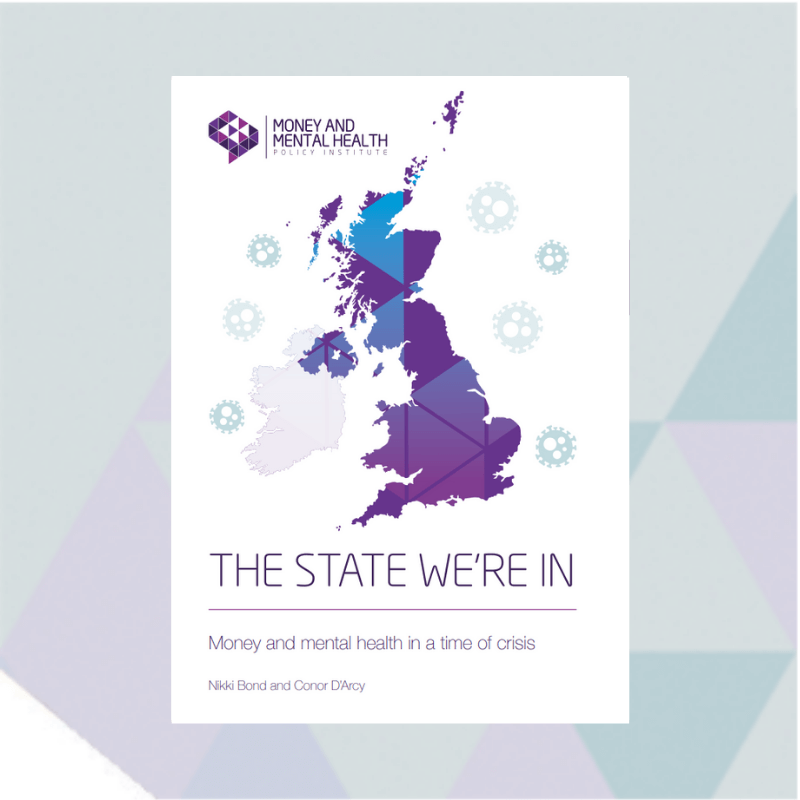Nikki Bond, Senior Research Officer and Conor D’Arcy, Head of Research and Policy
The State We're In
Money and mental health in a time of crisis
PLEASE NOTE: This research contains information on the subject of suicide that some people may find distressing
This report offers a state-of-the-nation snapshot of the financial and mental wellbeing of people across the UK during the pandemic.
It reveals that during the Covid crisis, people with mental health problems faced a much higher risk of financial hardship compared to the wider population.
Our findings show that during the pandemic people with mental health problems were:
- Three times more likely to have fallen into problem debt than the wider population (15% compared to 4%).
- More than twice as likely to have relied on credit or borrowing to cover every day spending — for example, on food or heating (26% compared to 11%).
- More likely to have had zero savings to help them cope with emergencies. 1 in 4 people with mental health problems say they have no savings that they could use in emergencies (compared to 18% of the wider population), and nearly half (46%) say they can’t afford to save money regularly.
- At high risk of considering suicide when behind on payments. 44% of UK adults with mental health problems who fell behind on bills last year either considered or attempted to take their own life. If reflected nationally, that amounts to 2.5m in people in total.
Key recommendations:
- The government should prioritise tackling the links between debt, mental health problems and suicide in its pandemic recovery plans. The Health Secretary Sajid Javid recently announced plans for a cross government white paper on health prevention and inequalities. Addressing the link between financial difficulty and serious mental health problems should be at the heart of this plan, to give people a better chance of recovering from both.
- GPs, A&E departments and community mental health services should routinely ask people receiving treatment for mental health problems about their finances, and provide clear signposting pathways in place to assist those who need it.
- Banks, energy companies and other essential services providers should proactively identify customers who may be struggling, and improve the support they offer. This could include developing better processes for referring people to debt advice, offering realistic repayment plans, freezing interest and charges, and reviewing decisions on debt collection for customers with mental health problems.
Read the full report here.
Read the methodology here.

Money and Mental Health is grateful to Capital One UK for supporting the funding of this research.
